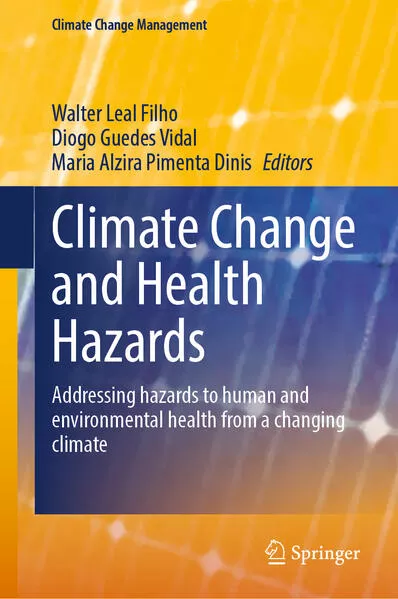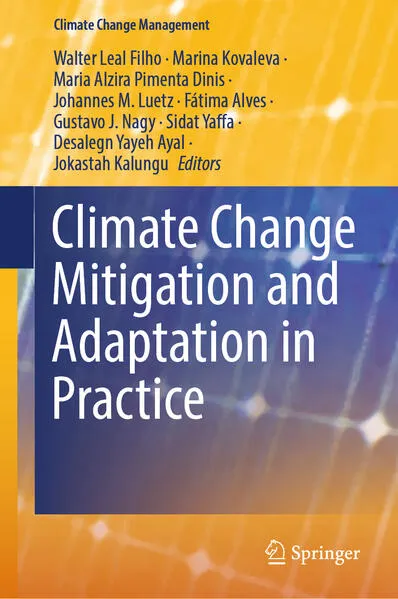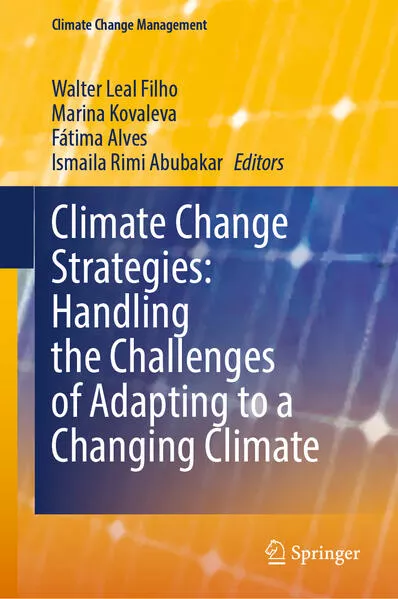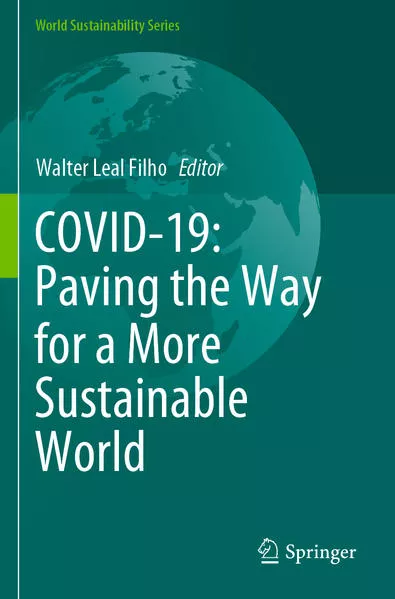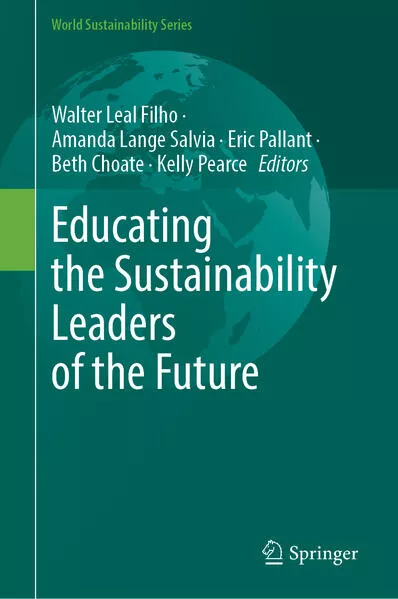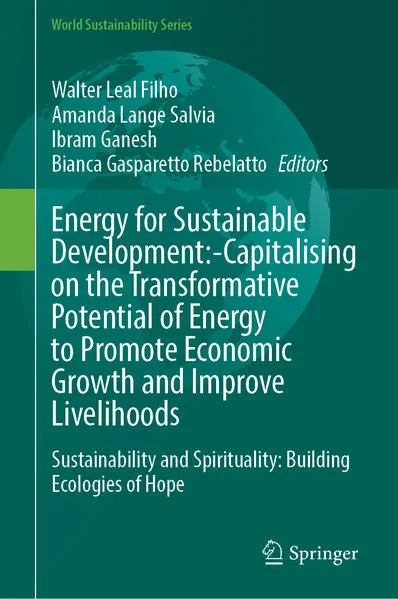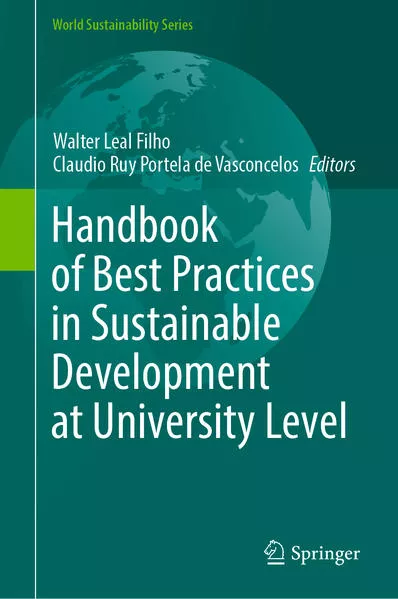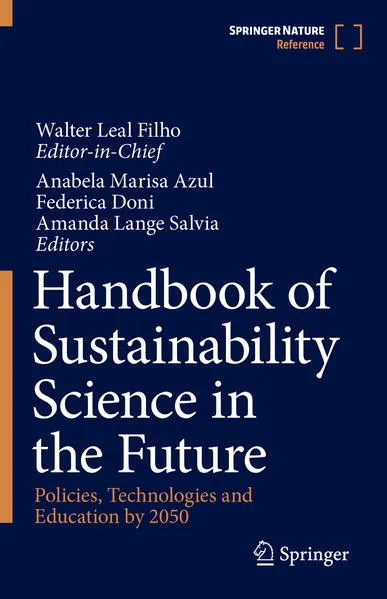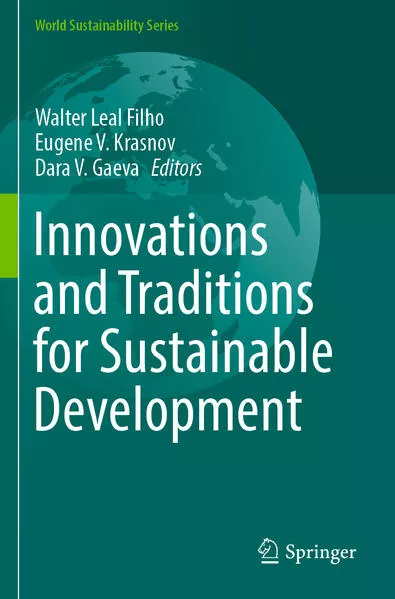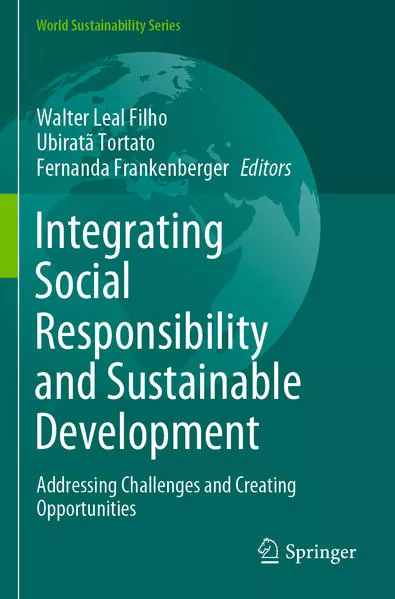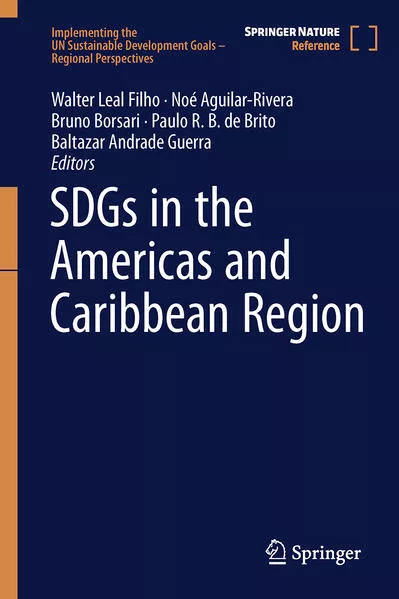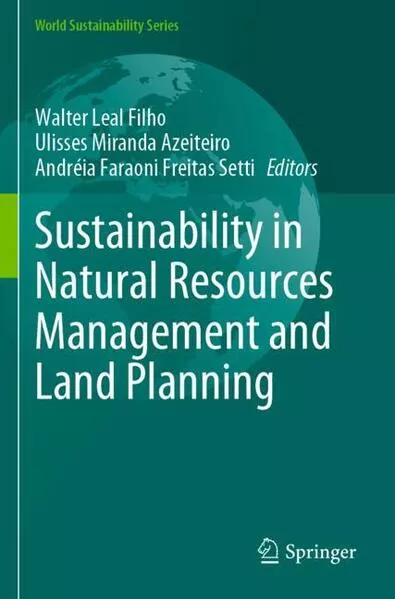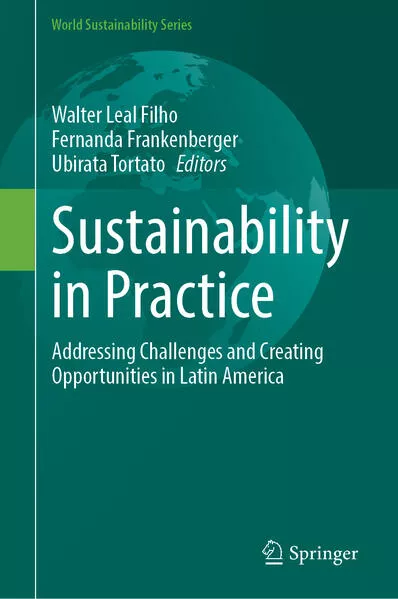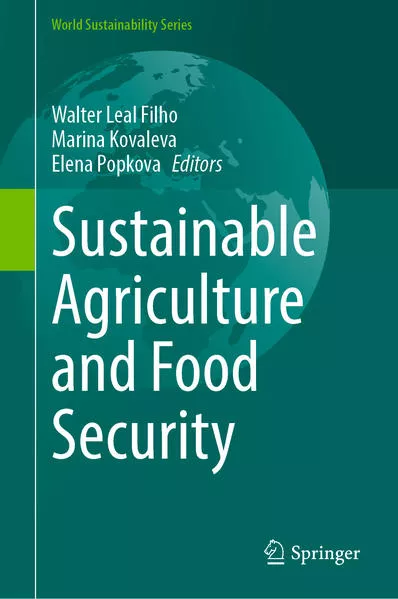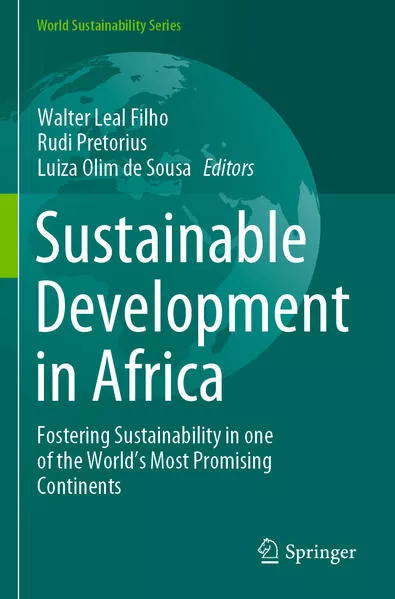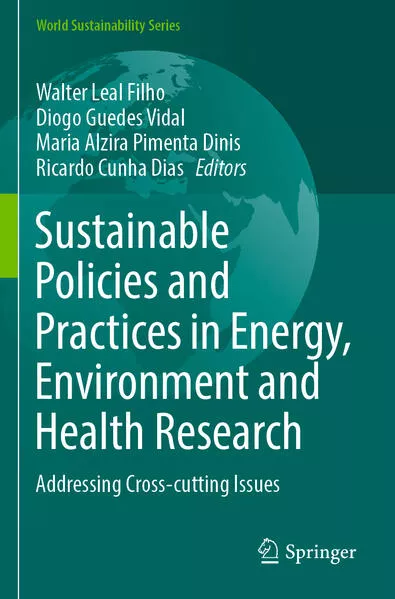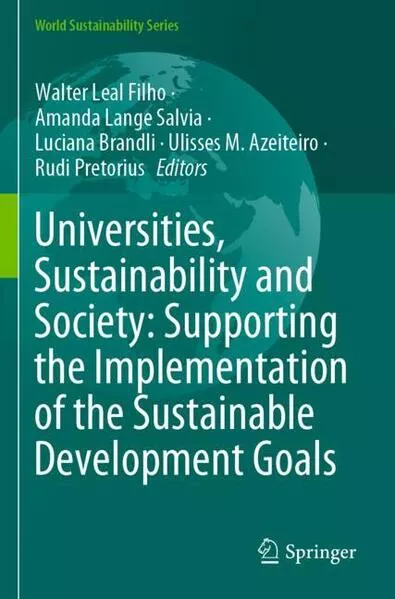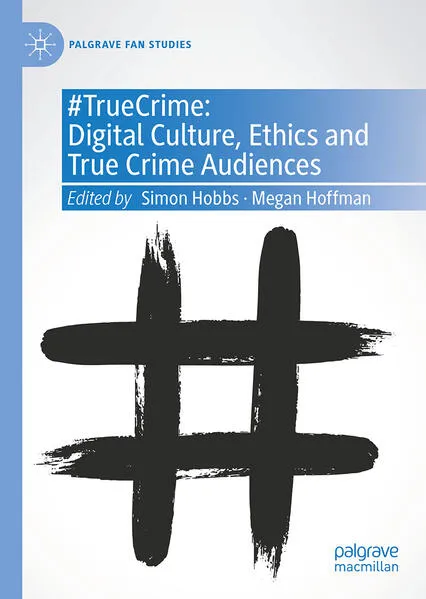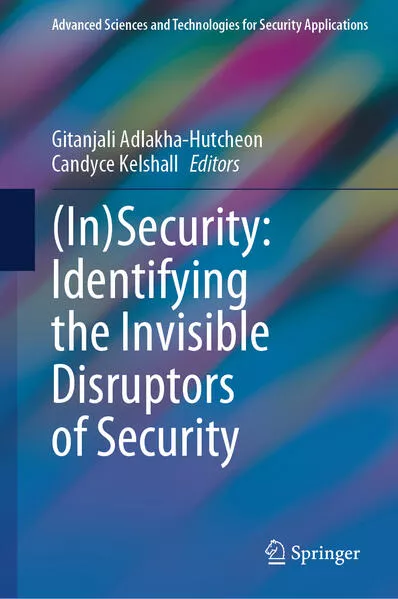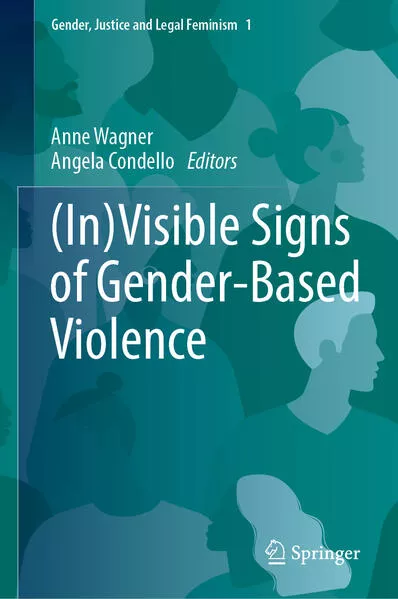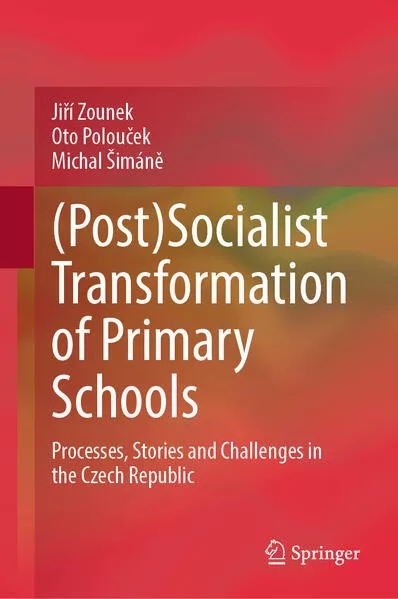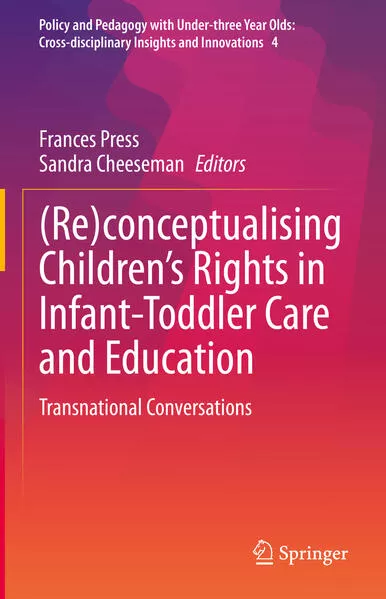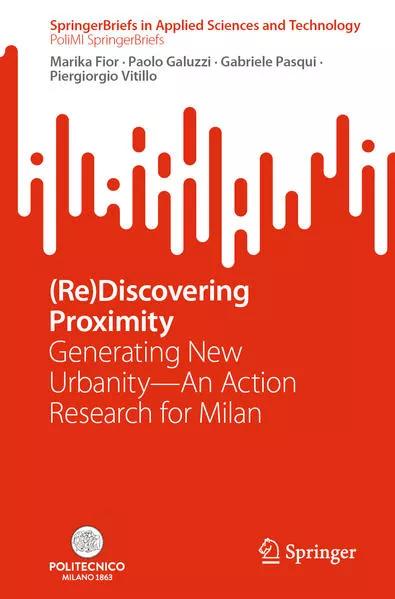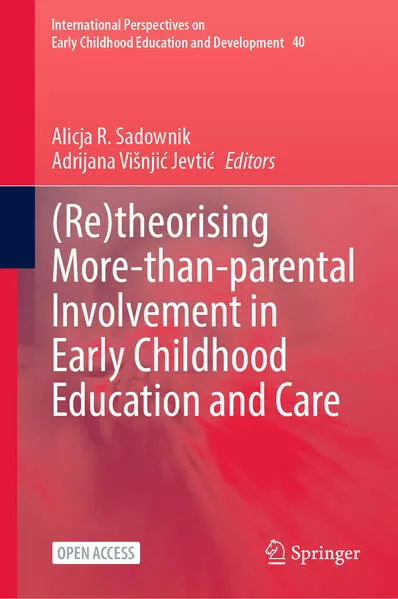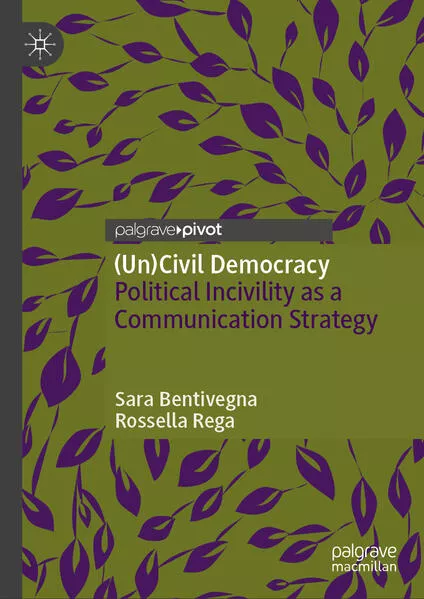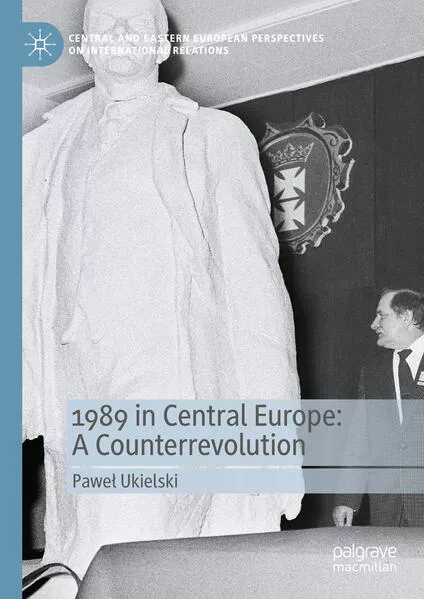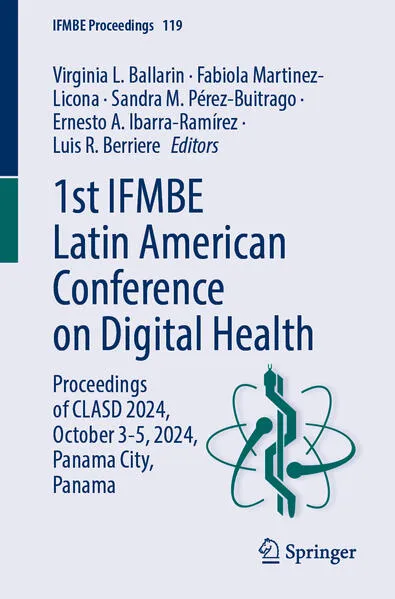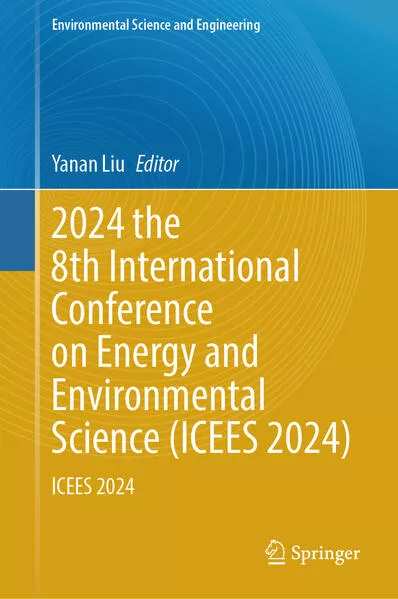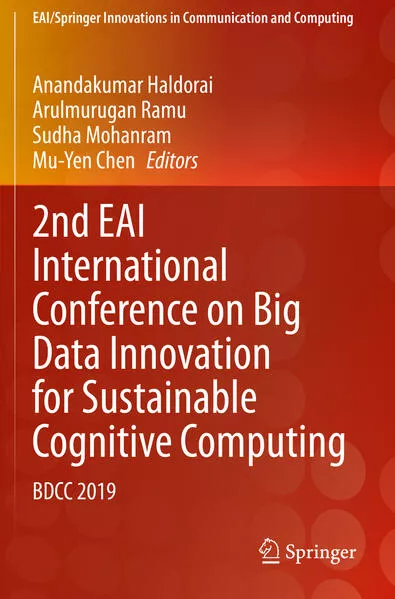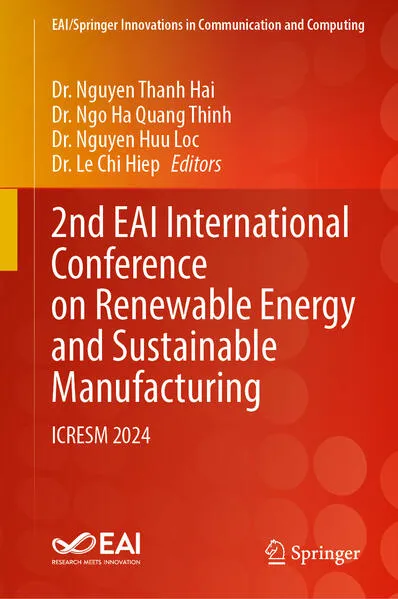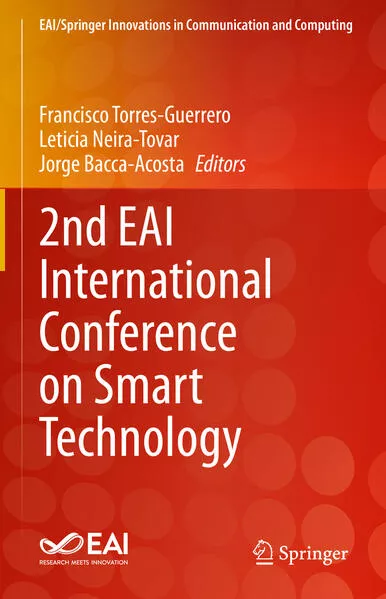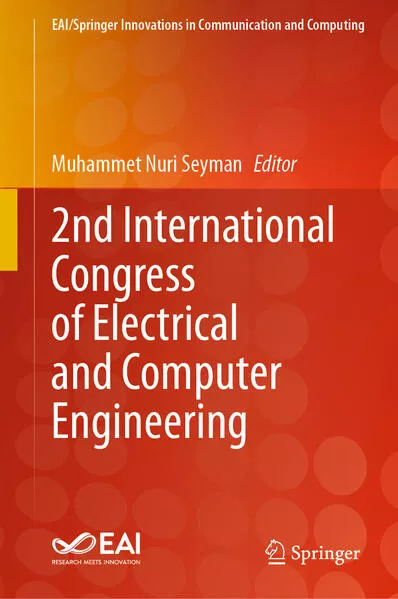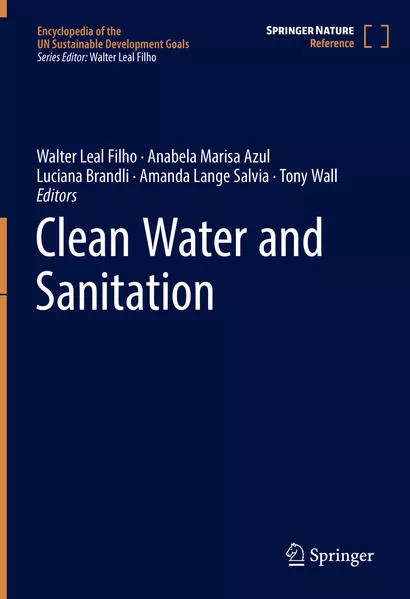
Clean Water and Sanitation
The problems related to the process of industrialisation such as biodiversity depletion, climate change and a worsening of health and living conditions, especially but not only in developing countries, intensify. Therefore, there is an increasing need to search for integrated solutions to make development more sustainable. The United Nations has acknowledged the problem and approved the “2030 Agenda for Sustainable Development”. On 1st January 2016, the 17 Sustainable Development Goals (SDGs) of the Agenda officially came into force. These goals cover the three dimensions of sustainable development: economic growth, social inclusion and environmental protection.
The Encyclopedia of the UN Sustainable Development Goals comprehensively addresses the SDGs in an integrated way. It encompasses 17 volumes, each devoted to one of the 17 SDGs. This volume is dedicated to SDG 6 "Ensure availability and sustainable management of water andsanitation for all". Water and sanitation are fundamental to human well-being. Integrated water resources management is essential to ensure availability and sustainable management of water and sanitation for all and to the realization of Sustainable Development.
Concretely, the defined targets are:
- Achieve universal and equitable access to safe and affordable drinking water for all
- Achieve access to adequate and equitable sanitation and hygiene for all and end open defecation, paying special attention to the needs of women and girls and those in vulnerable situations
- Improve water quality by reducing pollution, eliminating dumping and minimizing release of hazardous chemicals and materials, halving the proportion of untreated wastewater and substantially increasing recycling and safe reuse globally
- Substantially increase water-use efficiency across all sectors and ensure sustainable withdrawals and supply of freshwater to address water scarcity and substantially reduce the number of people suffering from water scarcity
- Implement integrated water resources management at all levels, including through transboundary cooperation as appropriate
- Protect and restore water-related ecosystems, including mountains, forests, wetlands, rivers, aquifers and lakes
- Expand international cooperation and capacity-building support to developing countries in water- and sanitation-related activities and programmes, including water harvesting, desalination, water efficiency, wastewater treatment, recycling and reuse technologies
- Support and strengthen the participation of local communities in improving Uwater and sanitation management
Ulisses M. Azeiteiro, Anabela Marisa Azul, Luciana Brandli, Dominique Darmendrail, Despo Fatta–Kassinos, Walter Leal Filho, Susan Hegarty, Amanda Lange Salvia, Albert Llausàs, Paula Duarte Lopes,Javier Marugán, Fernando Morgado, Wilkister Nyaora Moturi, Karel F. Mulder, Alesia Dedaa Ofori, Sandra Ricart
Unterstütze den lokalen Buchhandel
Nutze die PLZ-Suche um einen Buchhändler in Deiner Nähe zu finden.
Bestelle dieses Buch im Internet
| Veröffentlichung: | 11.06.2022 |
| Höhe/Breite/Gewicht | H 25,4 cm / B 17,8 cm / - |
| Seiten | 1018 |
| Art des Mediums | Buch [Gebundenes Buch] |
| Preis DE | EUR 481.49 |
| Preis AT | EUR 494.99 |
| Reihe | Encyclopedia of the UN Sustainable Development Goals |
| ISBN-13 | 978-3-319-95845-3 |
| ISBN-10 | 3319958453 |
Über den Autor
Professor Walter Leal Filho (BSc, PhD, DSc, DPhil, DEd, DL, DLitt) holds the Chairs of Environment and Technology at Manchester Metropolitan University (UK) and of Climate Change Management at the Hamburg University of Applied Sciences (Germany), where he directs the Research and Transfer Centre „Sustainability Development and Climate Change Management”. His main research interests are in the fields of sustainable development and climate change, also including aspects of climate change and health. He holds various doctoral degrees. He is a member of the Society of Biology, Royal Geographical Society (FRGS), and Linnean Society (FLS). His field experience in over 70 countries, involves missions undertaken on behalf of various international organisations (e.g. European Union, World Bank, OECD, UNESCO, UNEP) and attendance to specialised events in North America, Latin America/Caribbean, Europe, Africa, Asia and Pacific Region, and the Middle East. Among the many awards he has received, it can be mentioned the 1999 “Leading Editor of the Year Award” and the 2000 “Editor of the Year Award”, by MCB University Press, the “Eco-Citizen Award” (2001) in Rio de Janeiro and the Aurelio Giuseppe Prize awarded by the Italian Council of Ministers for his environmental work. Moreover, he was awarded the “Golden Page Award” (April 2003) in London for his editorial work and the North Sea Star Award (2006) by the EU-Interreg Secretariat for his project work in the North Sea Region. In the field of sustainable development, Professor Walter Leal is the founder of the European School of Sustainability Science and Research and of the Inter-University Sustainable Development Research Programme (IUSDRP). Apart from being author, co-author, editor or co-editor of over 150 books and journals, Professor Leal has published in excess of 300 articles in journals. Having undertaking sustainability and climate change projects round the world, he is a seasoned editor and project manager.
Diesen Artikel teilen
0 Kommentar zu diesem Buch
... weitere Publikationen von Leal Filho, Walter
.... weitere Publikationen von Springer International Publishing
Okkultes Historiendrama über den bedeutendsten Geheimkult der Antike - Spannung, Archäologie, Liebe und Mystery
Bewerbungsfrist bis zum: 17.03.2026



